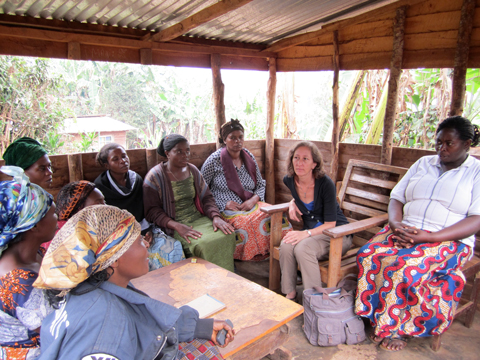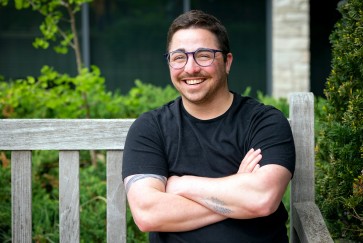Stories of refugees appear regularly in our news feeds these days, but reliable data on those refugees is sorely lacking. Galya Ben-Arieh Ruffer at Northwestern’s Center for Forced Migration Studies (CFMS) is trying to change that.
“Numbers are so important to the debate we’re having over refugee rights worldwide,” Ben-Arieh says. “But it turns out that when you investigate those numbers, there is no credibility to them. There is no reliable, centralized data that speaks directly to the particular situation of refugees.”
With this in mind, last year Ben-Arieh and her team at CFMS, part of the Buffett Institute, launched a qualitative cross-sectional study across eight states, looking at long-term outcomes and experiences of refugees. The goal, Ben-Arieh says, is to understand what refugees themselves consider successful outcomes.
In addition to their own study, which is now wrapping its pilot phase, CFMS aims to create a data repository. This database will incorporate openly accessible national and international data, and local data, as well as numbers from refugee agencies.
“Once we build a database, research can truly progress,” Ben-Arieh says. “Practitioners, students and other stakeholders all over the world can find answers to their questions.”
Other stakeholders, Ben-Arieh says, include refugees themselves. CFMS meets with resettled refugees — people who have experienced coming to the U.S. as refugees and are now living and working here — to make sure CFMS remains on-target in its efforts. Direct feedback from resettled refugees, some of whom now work for aid agencies, helps CFMS ensure it is considering lived experiences alongside larger trends.
Prior to founding CFMS, Ben-Arieh worked as an immigration attorney representing refugees in their claim for asylum in the U.S.. She has conducted field research in East Africa and Europe and authored books on refugee rights and the prosecution of sexual violence. Ben-Arieh continues to serve as a pro-bono attorney for refugees and asylum seekers, and says the duality of straddling practice and theory is critical to her work.
“I believe it’s important to do both,” Ben-Arieh says. “I don’t think I should just be in an ivory tower. I think I have to be directly working with people to understand what the issues are.”
The CFMS database will enable better research on questions of refugee policy, and it will also boost overall understanding of the individual refugee experience, which is an issue particularly dear to Ben-Arieh.
“My mom came to the U.S. two weeks before I was born, and I feel my upbringing enabled me to listen and understand people,” she says. “I feel more connected with people who are unsettled and figuring things out. I want to be a resource for them. I don’t have to answer all of their questions, but people aren’t looking for you to solve their problems. They’re looking for you to hear them.”
With the database as the starting point, Ben-Arieh and the CFMS intend to continue improving refugee experience and outcomes.
“There’s a huge need for this data,” Ben-Arieh says. “The system is not working. We can do better.”


